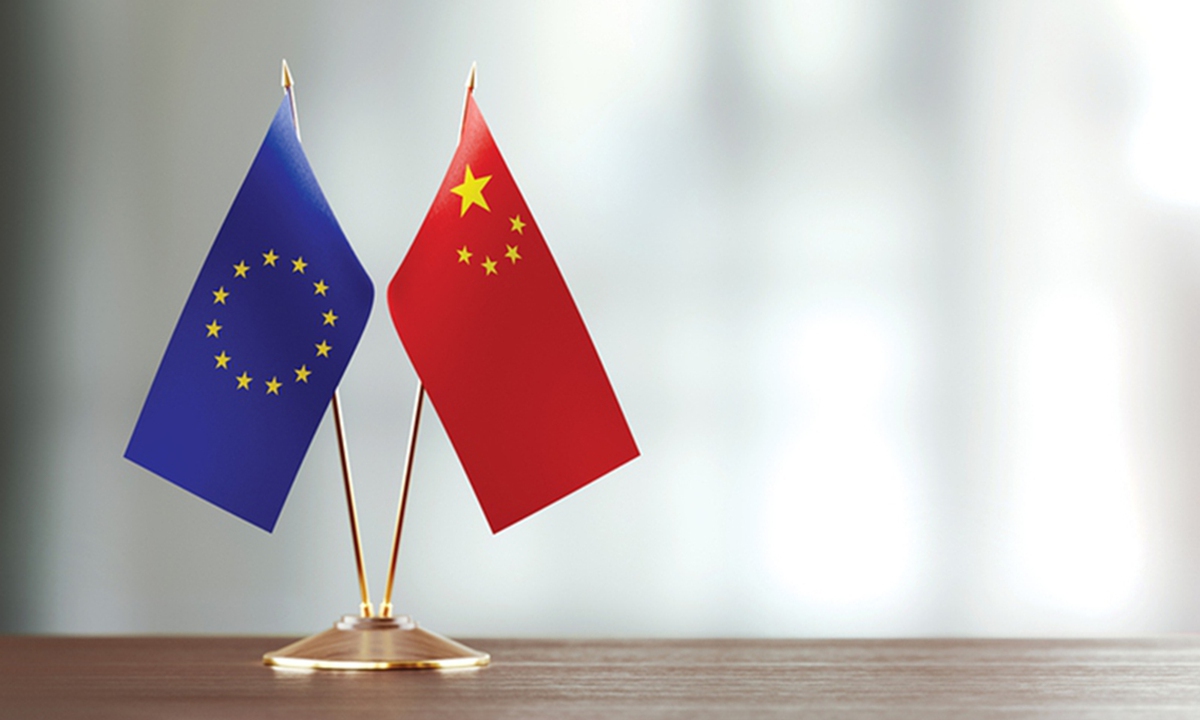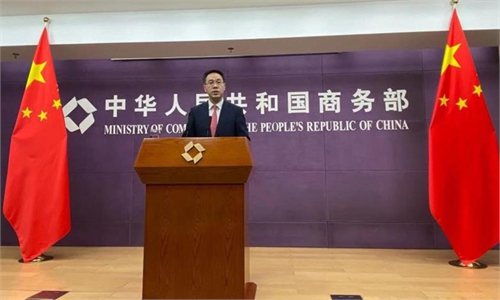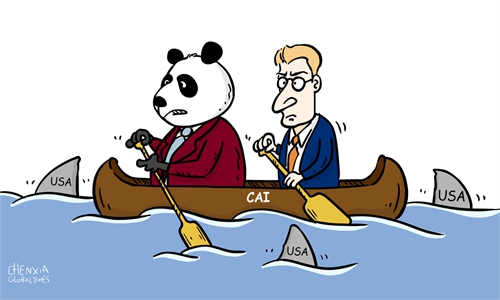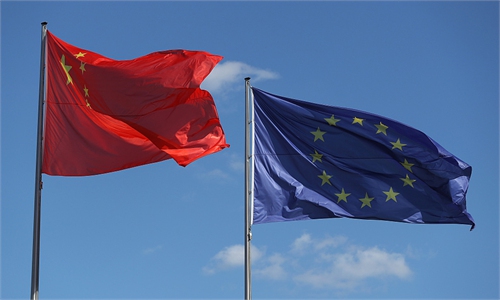COMMENTS / EXPERT ASSESSMENT
EU should realize the urgency to pass CAI to win opportunity for European businesses

Photo: VCG
During an official visit to China on Monday, Hungarian Minister of Foreign Affairs and Trade, Peter Szijjarto, said that his country supports the signing of the EU-China Comprehensive Agreement on Investment (CAI) and that freezing this process goes against the interest of Europe.
The remarks came after the reckless political maneuver by the European Parliament of freezing the parliamentary debate on the agreement. It has since stirred up concerns over the fate of the mutually beneficial deal which might bring a once-in-a-generation opportunity to European firms during the post-COVID era.
After negotiations were completed at the end of last year, the deal has drawn high expectations from businesses from both sides, including new energy vehicles (NEV) and financial and health services, which highlight the strong complementarity of the two large economies.
Auto making has been one of the pillar industries of Europe, while the competition in China's colossal auto market has becoming increasingly fierce with both domestic and foreign players speeding up their presence in the market in recent years. For instance, the American automaker Tesla setup a gigafactory in Shanghai and its Japanese competitor, Toyota, also planned an investment of over 1 billion dollars last year to build a new electric vehicle factory in North China's Tianjin with its local partner FAW Group, according to a report by Reuters.
Meanwhile, China's domestic NEV makers have also grown rapidly amid intense competition. In May, XPeng Motors delivered 5,686 vehicles, an increase of 483 percent year-on-year, and Nio Inc delivered 6,711 vehicles, a growth of 95.3 percent year-on-year.
The significance of the Chinese market to European auto makers is evident. Besides the traditional manufacturing industries, CAI's significance for Europe's service industries cannot be underscored enough. Taking the financial service sector as an example, on one side, China has the largest middle class in the world, while on the other side, EU financial service suppliers have to outcompete rivals from the US or the UK to gain a larger market share.
China announced on Monday a policy allowing every couple to have three children in an effort to cope with the aging of the country's population. This measure, along with the plan to increase the retirement age, is attractive to the service industry, especially with the growing preferences by Chinese consumers over education, entertainment, health and medical care in recent years.
The opportunities on the Chinese market mean not just several years of revenue for European firms but also will affect their competitive position in the global market. A shrinking share in the Chinese market may trigger a domino effect in some European multinationals that could undermine their long-term development.
European companies understand the importance of the Chinese market for their growth but it seems that some biased European politicians, by putting political interest in the first place, are closing the hard-won window for their domestic industries.
In 2020 when global trade battered by the COVID-19 pandemic, China became the largest trading partner of the EU. With over 170 billion euros of accrued investment in China, EU firms have been thriving in the Chinese market for decades.
With strong industrial complementarity and a solid foundation of economic exchange between the two sides, the investment deal is equally beneficial for both economies.
Though the ratification of the CAI has encountered setbacks, it is believed that the decision of the European Parliament does not represent the position of the whole EU. China, with its steadfast opening-up, is offering crucial opportunities for both domestic and global players and is expected to drive the global recovery after the health crisis. In meantime, the EU, which is still struggling with recession, needs to realize the urgency to promote the implementation of CAI as soon as possible to win opportunities for European businesses.
The author is an editor with the Global Times. bizopinion@globaltimes.com.cn



